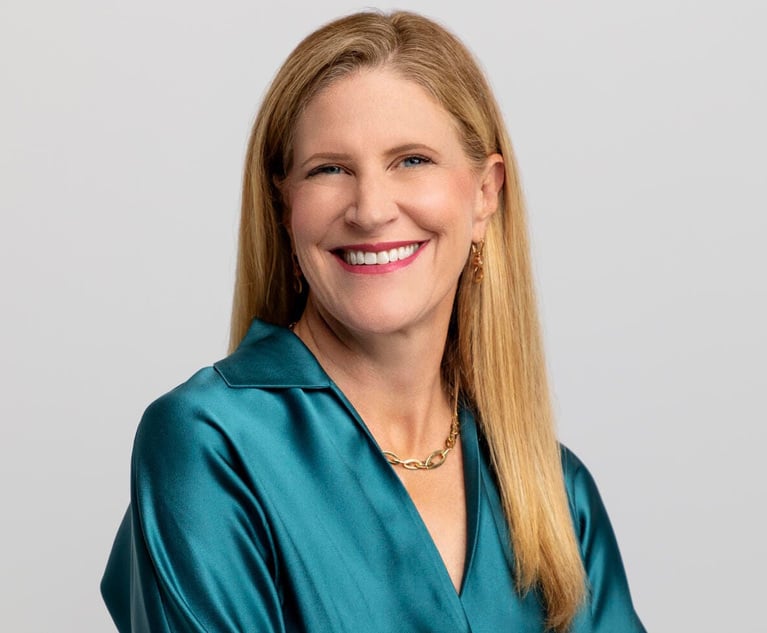Here Are Top Shareholder ESG Proxy Proposals for 2020 Season
"Median gender and racial pay equity is going to be a major issue," said Arjuna Capital managing partner Natasha Lamb.
March 19, 2020 at 04:03 PM
5 minute read
 Proxy Preview 2020 Report
Proxy Preview 2020 Report
About two-thirds of the 429 shareholder resolutions filed this proxy season deal with political spending, climate change and fair treatment for women on boards and in the workplace, according to a new proxy preview report released Thursday.
Proxy Preview 2020 shows the proposals involve many of the same issues that general counsel have been grappling with. They include corporate political activity at 18%, climate change at 15%, board diversity and oversight at 13%, and workplace diversity at 7%, among others.
The report is a joint project of the Sustainable Investments Institute, which provides impartial analysis to large institutional investors; Proxy Impact, a proxy voting service for sustainable and responsible investors; and As You Sow, a nonprofit group that advocates for environmental and social corporate responsibility.
It goes into more than 80 pages of details on the resolutions. The report was co-authored by Heidi Welsh, founding executive director of the Sustainable Investment Institute, and Michael Passoff, founder and CEO of Proxy Impact.
As expected, Welsh told Corporate Counsel, companies' "spending on elections and lobbying is still the biggest single issue."
She said one significant factor is that support levels for all the environment, social and governance proposals have continued to grow each year. As a result, she added, more companies are reaching agreements with shareholders before voting.
"More proposals are being withdrawn after agreements are reached than are going to a vote," Welsh said, "and that's a really significant shift."
Proponents have already withdrawn more proposals than they had last year at this time—78, compared with 71 in 2019 and 62 in 2018. Withdrawals generally indicate that the proponents and management have reached an agreement.
For example, investment management firm Arjuna Capital was able to reach deals with Mastercard Inc. and Starbucks Corp. over resolutions calling for disclosure of median gender and racial pay equity resolutions, and those resolutions were withdrawn. Citigroup Inc. reached such an agreement in 2019.
Arjuna said other companies considering median gender pay equity resolutions in 2020 include Adobe Inc., Alphabet Inc./Google, Amazon.com Inc., Facebook Inc., Intel Corp., Microsoft Corp., American Express Co., Bank of America Corp., Bank of New York Mellon Corp., JPMorgan Chase & Co., and Wells Fargo & Co.
Arjuna managing partner Natasha Lamb said in a statement, "Median gender and racial pay equity is going to be a major issue in the 2020 shareholder season. … Investors view 'median pay,' 'equal pay,' and 'racial pay' gap disclosures as essential to not only measuring and managing pay equity, but as benchmarks to improved diversity in higher-paying jobs."
Corporate support for climate change has grown, Welsh said, because "the financial community is now seeing climate change as a risk and wants more disclosure" from the companies. "Any in-house corporate lawyer wants to know the risks and how to manage them," she added.
Welsh said one key trend over the "last couple years is the big increase in proposals asking companies to tie the range of sustainability metrics to executive pay, especially bonuses."
That trend holds true this year especially for pharmaceutical companies. "Proponents increasingly want specifics on the company's recipe for compensation," she explained.
The report says the U.S. Securities and Exchange Commission has allowed the omission of 26 proposals so far based on company challenges. Companies have lodged objections to at least 63 more that have yet to be decided.
The shareholder voting in 2020 is being seen as a test of companies' commitment to stakeholder capitalism, which includes customers, employees, suppliers and the community as well as shareholders. The concept was recently endorsed by the Business Roundtable and the World Economic Forum and could impact this year's voting.
"It sure sounds like a new era has dawned," said a statement from Andrew Behar, CEO of As You Sow. "But the 2020 proxy season will test if investors and companies will help define a new economic paradigm or if these endorsements are just empty words."
Behar also indicated that no one knows yet how the cloud of the coronavirus might impact this proxy season. "The coronavirus pandemic is causing border closings and promises to affect supply chains, which may lead to even more economic upheaval, especially for the most vulnerable communities," he said.
Several companies have already withdrawn their 2020 financial guidance statements.
As the spreading pandemic impacts boards of directors, the SEC has advised companies they can change the date and location of meetings as needed, or even hold virtual meetings, so long as proper notifications and filings are made.
This content has been archived. It is available through our partners, LexisNexis® and Bloomberg Law.
To view this content, please continue to their sites.
Not a Lexis Subscriber?
Subscribe Now
Not a Bloomberg Law Subscriber?
Subscribe Now
NOT FOR REPRINT
© 2025 ALM Global, LLC, All Rights Reserved. Request academic re-use from www.copyright.com. All other uses, submit a request to [email protected]. For more information visit Asset & Logo Licensing.
You Might Like
View All
John Deere Annual Meeting Offers Peek Into DEI Strife That Looms for Companies Nationwide
7 minute read
Wells Fargo and Bank of America Agree to Pay Combined $60 Million to Settle SEC Probe

Former Capital One Deputy GC Takes Legal Reins of AIG Spinoff

Ex-Six Flags CLO Lands New C-Suite Post—This Time as HR Chief
Trending Stories
Who Got The Work
J. Brugh Lower of Gibbons has entered an appearance for industrial equipment supplier Devco Corporation in a pending trademark infringement lawsuit. The suit, accusing the defendant of selling knock-off Graco products, was filed Dec. 18 in New Jersey District Court by Rivkin Radler on behalf of Graco Inc. and Graco Minnesota. The case, assigned to U.S. District Judge Zahid N. Quraishi, is 3:24-cv-11294, Graco Inc. et al v. Devco Corporation.
Who Got The Work
Rebecca Maller-Stein and Kent A. Yalowitz of Arnold & Porter Kaye Scholer have entered their appearances for Hanaco Venture Capital and its executives, Lior Prosor and David Frankel, in a pending securities lawsuit. The action, filed on Dec. 24 in New York Southern District Court by Zell, Aron & Co. on behalf of Goldeneye Advisors, accuses the defendants of negligently and fraudulently managing the plaintiff's $1 million investment. The case, assigned to U.S. District Judge Vernon S. Broderick, is 1:24-cv-09918, Goldeneye Advisors, LLC v. Hanaco Venture Capital, Ltd. et al.
Who Got The Work
Attorneys from A&O Shearman has stepped in as defense counsel for Toronto-Dominion Bank and other defendants in a pending securities class action. The suit, filed Dec. 11 in New York Southern District Court by Bleichmar Fonti & Auld, accuses the defendants of concealing the bank's 'pervasive' deficiencies in regards to its compliance with the Bank Secrecy Act and the quality of its anti-money laundering controls. The case, assigned to U.S. District Judge Arun Subramanian, is 1:24-cv-09445, Gonzalez v. The Toronto-Dominion Bank et al.
Who Got The Work
Crown Castle International, a Pennsylvania company providing shared communications infrastructure, has turned to Luke D. Wolf of Gordon Rees Scully Mansukhani to fend off a pending breach-of-contract lawsuit. The court action, filed Nov. 25 in Michigan Eastern District Court by Hooper Hathaway PC on behalf of The Town Residences LLC, accuses Crown Castle of failing to transfer approximately $30,000 in utility payments from T-Mobile in breach of a roof-top lease and assignment agreement. The case, assigned to U.S. District Judge Susan K. Declercq, is 2:24-cv-13131, The Town Residences LLC v. T-Mobile US, Inc. et al.
Who Got The Work
Wilfred P. Coronato and Daniel M. Schwartz of McCarter & English have stepped in as defense counsel to Electrolux Home Products Inc. in a pending product liability lawsuit. The court action, filed Nov. 26 in New York Eastern District Court by Poulos Lopiccolo PC and Nagel Rice LLP on behalf of David Stern, alleges that the defendant's refrigerators’ drawers and shelving repeatedly break and fall apart within months after purchase. The case, assigned to U.S. District Judge Joan M. Azrack, is 2:24-cv-08204, Stern v. Electrolux Home Products, Inc.
Featured Firms
Law Offices of Gary Martin Hays & Associates, P.C.
(470) 294-1674
Law Offices of Mark E. Salomone
(857) 444-6468
Smith & Hassler
(713) 739-1250






